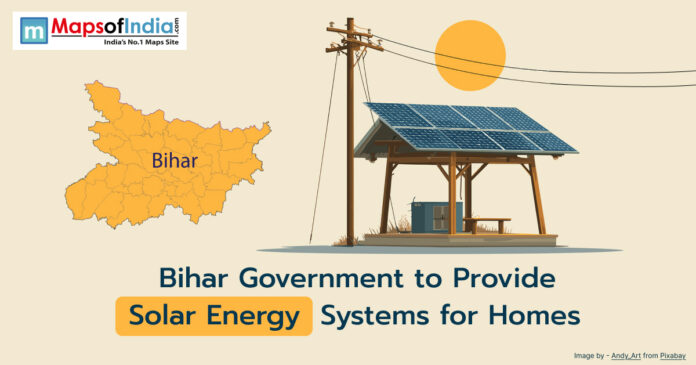In a major push towards renewable energy adoption, the Bihar government has announced plans to install solar energy systems on the rooftops of domestic consumers across the state. The initiative is aimed at reducing dependence on conventional electricity, lowering household power bills, and promoting environmentally sustainable energy solutions.
The scheme will enable households to generate their own electricity through rooftop solar photovoltaic (PV) panels. These systems will not only meet daily energy needs but also allow surplus power to be transferred back to the grid through a net-metering system. This will give consumers the benefit of reduced bills or credits for the excess electricity generated.
The government has assured that financial assistance and subsidies will be provided to make the installation process affordable, particularly for low- and middle-income households. Special attention will be given to rural areas, where grid connectivity is inconsistent, ensuring that solar power can provide a reliable and uninterrupted supply of electricity.
According to the plan, the rollout will take place in phases. Initially, pilot projects will be launched in select districts to assess performance, identify challenges, and fine-tune the process before a larger state-wide implementation. Urban residential complexes, government housing colonies, and village households are all expected to benefit from the scheme.
The move is also expected to generate new employment opportunities in the renewable energy sector. Demand for skilled workers in solar panel installation, system maintenance, and technical support is set to rise, creating job avenues for local youth.
Apart from economic benefits, the government believes the scheme will have a positive environmental impact. By shifting a portion of the state’s electricity demand to renewable sources, the initiative aims to reduce the burning of fossil fuels, thereby cutting greenhouse gas emissions and improving air quality.
Public awareness campaigns will accompany the rollout, encouraging citizens to adopt clean energy and explaining how rooftop solar systems can help save money while protecting the environment. The government will also release guidelines detailing installation procedures, safety measures, and maintenance requirements to ensure long-term efficiency of the systems.
This move is seen as a significant step in Bihar’s journey towards sustainable energy self-reliance. By empowering households to produce their own clean power, the government hopes to make solar energy a mainstream source of electricity and position Bihar as a leader in renewable energy adoption at the state level.










